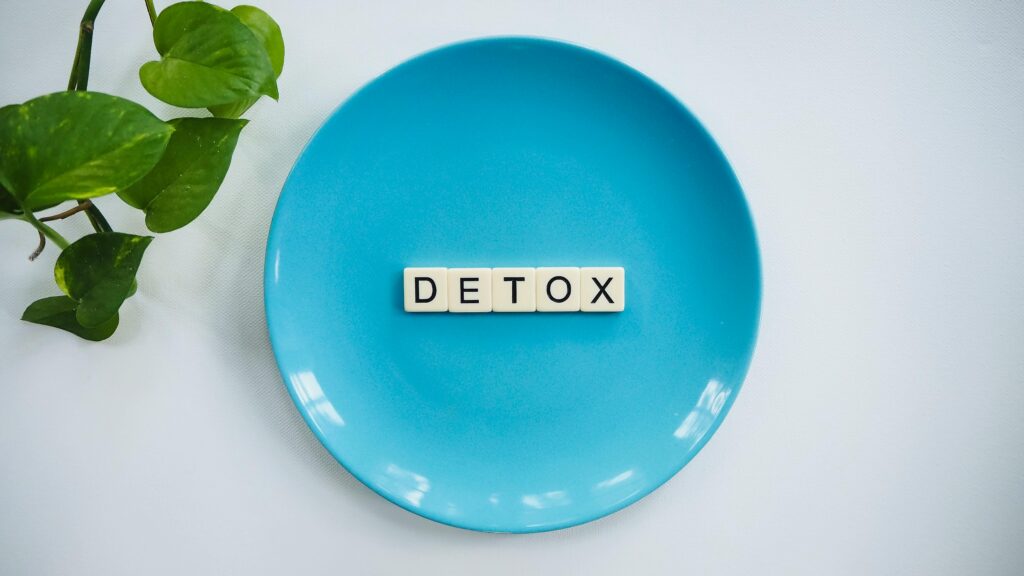
Drug detox, also known as drug detoxification, is a crucial first step in the journey to overcoming substance abuse and addiction, including alcohol use disorder. This process involves removing toxins from the body that have built up due to drug or alcohol use. Detox is essential to help individuals safely manage withdrawal symptoms and prepare for further treatment. In this article, we will explore the process of drug detox, its duration, common medications used, and the importance of seeking professional help from alcohol detox centers, with input from the American Addiction Centers.
What is Drug Detox and How Does it Work?
Exploring the Process of Detoxification
Detoxification is the process through which the body eliminates harmful substances, such as drugs or alcohol. It aims to cleanse the body of toxins accumulated from substance abuse, including drug abuse, and prepare the individual for the next steps in treatment.
Understanding Withdrawal Symptoms in Detox
Withdrawal symptoms are the physical and psychological effects that occur when a person stops using a substance they have become dependent on. These symptoms can range from mild to severe and may include cravings, anxiety, nausea, and insomnia.
Is it Safe to Detox at Home?
While some individuals attempt to detox at home, it is not recommended, especially for severe cases of addiction. Medical detox, under the supervision of healthcare professionals, is the safest way to detox as it allows for proper monitoring and management of withdrawal symptoms.
How Long Does Drug Detox Take?
Factors Affecting the Duration of Detox
The duration of drug detox can vary depending on several factors, including the type and amount of substance used, the individual’s overall health, and the presence of any co-occurring mental health disorders.
Rapid Detox Methods
Rapid detox methods aim to accelerate the detox process by administering medications that quickly eliminate the drugs from the body, aiming to reduce drug withdrawal symptoms. However, these methods are controversial and may pose risks to individuals undergoing detox for drug withdrawal.
Typical Timeframe for Drug Detox Programs
Standard drug detox programs usually last anywhere from a few days to a few weeks, depending on the individual’s needs and progress throughout the detox process. Following drug detoxification, individuals may continue with further addiction treatment programs.
What Are the Common Medications Used in Drug Detox?
Overview of Drug Detox Medications
Various medications are utilized in drug detox to help manage withdrawal symptoms, reduce cravings, and support the individual throughout the detoxification process, particularly for those facing severe drug addiction. These medications play a crucial role in ensuring a safe and effective detox experience, specifically targeting symptoms of withdrawal from drug use.

Commonly Used Medications for Alcohol Detox
Medications commonly used in alcohol detox include benzodiazepines to alleviate withdrawal symptoms, disulfiram to deter alcohol consumption, and naltrexone to reduce cravings for alcohol.
Treatment Medications for Substance Use Disorders
For individuals dealing with substance use disorders, medications like methadone, buprenorphine, and naltrexone are often prescribed to manage opioid cravings, reduce withdrawal symptoms, and prevent relapse.
Can Drug and Alcohol Detox Be Done Together?
Approaches to Dual Diagnosis Detox
Dual diagnosis detox refers to the treatment of individuals with co-occurring substance use and mental health disorders. Integrated detox programs that address both drug and alcohol dependencies along with mental health issues can be effective in promoting long-term recovery.
Challenges of Simultaneous Drug and Alcohol Detox
Simultaneously detoxing from drugs and alcohol can present challenges due to the differing withdrawal symptoms and treatment needs for each substance. However, with proper medical supervision and individualized treatment plans, supported by insights from the National Institute on Drug Abuse, it is possible to safely detox from both substances simultaneously.
Benefits of Integrated Drug and Alcohol Detox Programs
Integrated drug and alcohol detox programs offer comprehensive care that addresses the complex needs of individuals struggling with both substance use disorders, guided by standards from the American Addiction Centers. These programs provide a supportive environment for individuals to detox safely and receive the necessary treatment for lasting recovery.
Where Can I Find a Reliable Alcohol Detox Center Near Me?
Choosing the Right Alcohol Detox Center
When selecting an alcohol detox center, it is essential to consider factors such as accreditation, treatment approaches, staff qualifications, and the availability of medical supervision. A reputable center, often accredited by the American Addiction Centers, should offer personalized care tailored to the individual’s needs, focusing on drug detoxification processes.
Importance of Medical Supervision in Detox Centers
Medical supervision in detox centers is critical to ensure the safety and well-being of individuals undergoing detox. Healthcare professionals can monitor vital signs, manage any complications that arise, and provide the necessary support throughout the detox process.
Understanding Different Detox Program Options
Detox program options vary in intensity and duration, ranging from outpatient detox programs that allow individuals to reside at home during treatment to inpatient programs that provide round-the-clock care in a residential setting. Choosing the right program depends on individual needs and the severity of the addiction, often requiring guidance from American Addiction Centers or similar organizations.
Q: How long does detox typically last?
A: The duration of detox can vary depending on individual factors such as the substance being detoxed from, including alcohol or drug, the individual’s metabolism, and overall health. In general, detox can last from a few days to a couple of weeks.
Q: What is medical detox and how is it different from other forms of detox?
A: Medical detox involves the use of medication and medical supervision to help manage withdrawal symptoms and safely detox from drugs or alcohol, as outlined by the National Institute on Drug Abuse. It is typically conducted in a specialized treatment center under the care of medical professionals, often recommended by the National Institute on Drug Abuse.
Q: What are common side effects of alcohol withdrawal during detox?
A: Common side effects of alcohol withdrawal during detox can include tremors, anxiety, sweating, nausea, insomnia, and in severe cases, delirium tremens (DTs).
Q: Can I detox from drugs or alcohol at home or should I seek professional help?
A: While some individuals may attempt to detox at home, it is generally recommended to seek professional help at a treatment center, especially for cases of severe addiction or when experiencing potentially dangerous withdrawal symptoms.
Q: What is the role of a rehab center in treating drug or alcohol addiction?
A: Rehab centers provide a structured environment for individuals to receive treatment for drug or alcohol addiction, including therapy, medical support, and counseling to address the underlying causes of substance abuse.
Q: How does a substance abuse treatment center help individuals with detox and recovery?
A: Substance abuse treatment centers offer comprehensive programs that combine detox services with therapy, support groups, and aftercare planning to help individuals achieve sustainable recovery from drug or alcohol addiction.
Q: What are the most common medications used for drug detox?
A: Common medications used for drug detox may include medications to manage withdrawal symptoms such as benzodiazepines for alcohol detox, methadone for opioid detox, and medications to reduce drug cravings.










